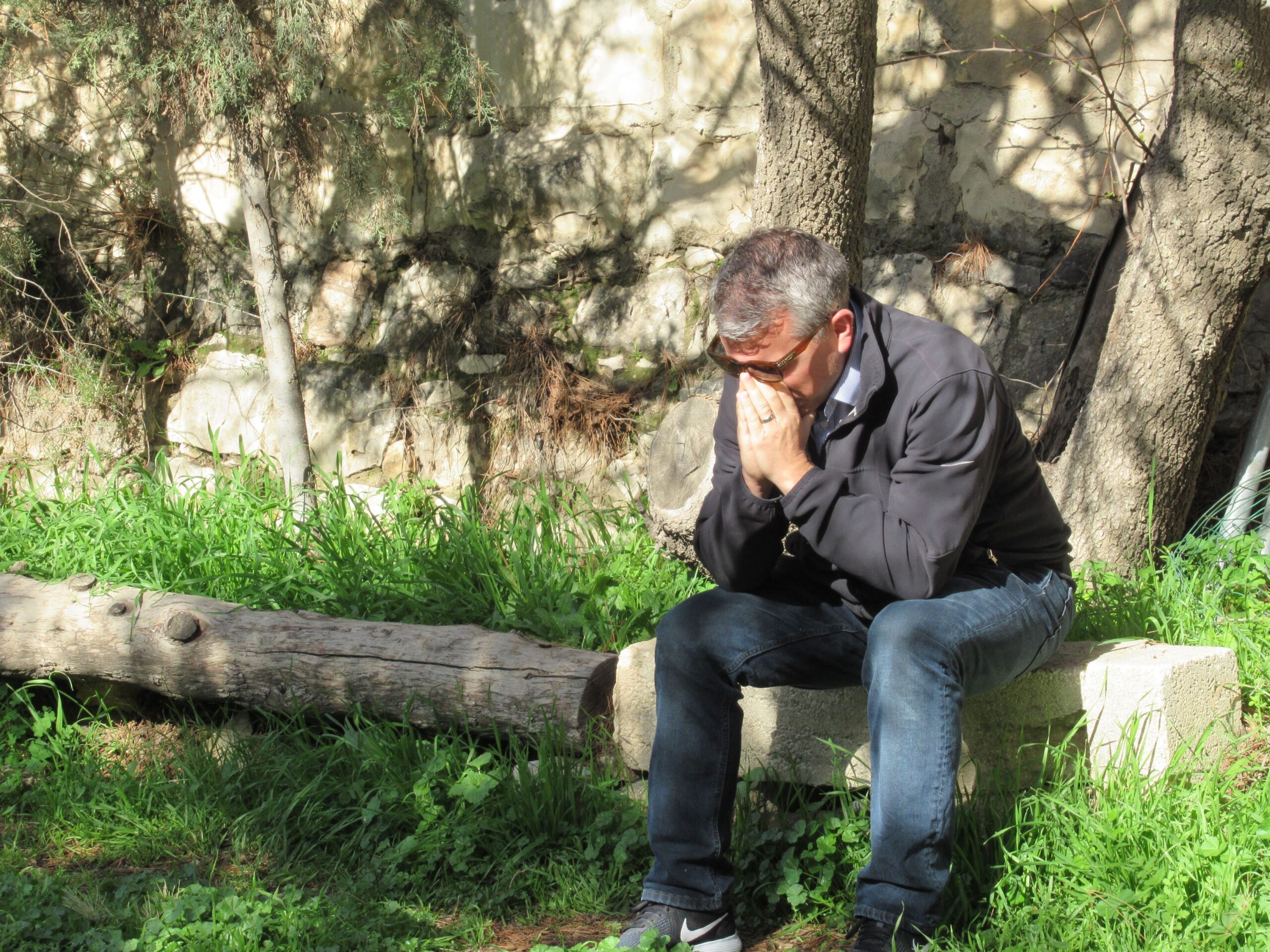Then Jesus came with them to a place called Gethsemane, and he told the disciples, “Sit here while I go over there and pray.” Taking along Peter and the two sons of Zebedee, he began to be sorrowful and troubled. He said to them, “I am deeply grieved to the point of death. Remain here and stay awake with me.” Going a little farther, he fell facedown and prayed, “My Father, if it is possible, let this cup pass from me. Yet not as I will, but as you will.”
Then he came to the disciples and found them sleeping. He asked Peter, “So, couldn’t you stay awake with me one hour? Stay awake and pray, so that you won’t enter into temptation. The spirit is willing, but the flesh is weak.”
Again, a second time, he went away and prayed, “My Father, if this cannot pass unless I drink it, your will be done.” And he came again and found them sleeping, because they could not keep their eyes open.
After leaving them, he went away again and prayed a third time, saying the same thing once more. Then he came to the disciples and said to them, “Are you still sleeping and resting? See, the time is near. The Son of Man is betrayed into the hands of sinners. Get up; let’s go. See, my betrayer is near.” Matthew 26:36-46 (CSB)
Think about this for a moment: The Lord of the universe, through whom and for whom all of creation came to be, didn’t want to do something. He was, in fact, desperate to not do something, if it fit within the will of the Father.
Two things strike me prominently about this.
Firstly, the hard thing that he was expected to do doesn’t fall within the ordered nature of the universe, but is a byproduct of its disordered state. That to say that death, sacrifice, murder, haunting cruelty and betrayal are not a part of the design of the cosmos, for the creator himself didn’t want to face it. The reality of this is that we must have far more mercy on ourselves for the struggles and difficulties we face in our everyday lives, as they are not normal ordered realities. God himself doesn’t want to face them. Don’t make fun of someone who doesn’t deal with loss well, or who has not finalized grief. Don’t minimize someone who doesn’t love conflict. Their tender hearts are shared with the tender heart of our creator, who doesn’t want to fight us.
It is us who want to fight him.
Secondly, and equally importantly, imagine the nature of the Trinity that Jesus is fully open about his vulnerabilities. He already knows what he must face, but he has no issue confessing that he doesn’t want to. In a) recognizing and b) confessing he is addressing the disparity within himself, and seeking solace from the relational nature of the Godhead. God the Father, God the Son, God the Holy Spirit, ever in communion with itself, encourages, and satisfies itself in its own love. As God is love, and that love is fully satisfied by God’s self, any action he does for us is not in necessity but out of generosity. God doesn’t need our love as it is, by nature, satisfied. He doesn’t need our response. He wants it, and is inviting us into the very same dynamic that fully satisfies Jesus in this moment. That to say that the same communion is as available for us as it was for him through the Holy Spirit. When we face our own trials and temptations, the availability to communicate both discomfort and desire are not something God needs, but something for which he pleads us to share with him. Not so that he can remove them, but that he might share their burden with us. That our God might suffer as we do, and might redeem the suffering for the purposes of love.
When we also a) recognize and b) confess, we are being honest and truthful with ourselves, and with God (as Jesus was), and that honesty is the very heart of the communion which draws us deeper into himself. But not just in mourning or difficulty, also with joy, anticipation, anxiety, fear, happiness, and pleasure. To share these with the Father through the Holy Spirit is to communicate a prayer of worship with our very lives. Our whole bodies, our souls, become temples for him in whatever we do, because we lift it all up to him, that he might share in it with us, and use us to share himself with others.
(Photo from the Garden of Gethsemane)

Leave a Reply
You must be logged in to post a comment.